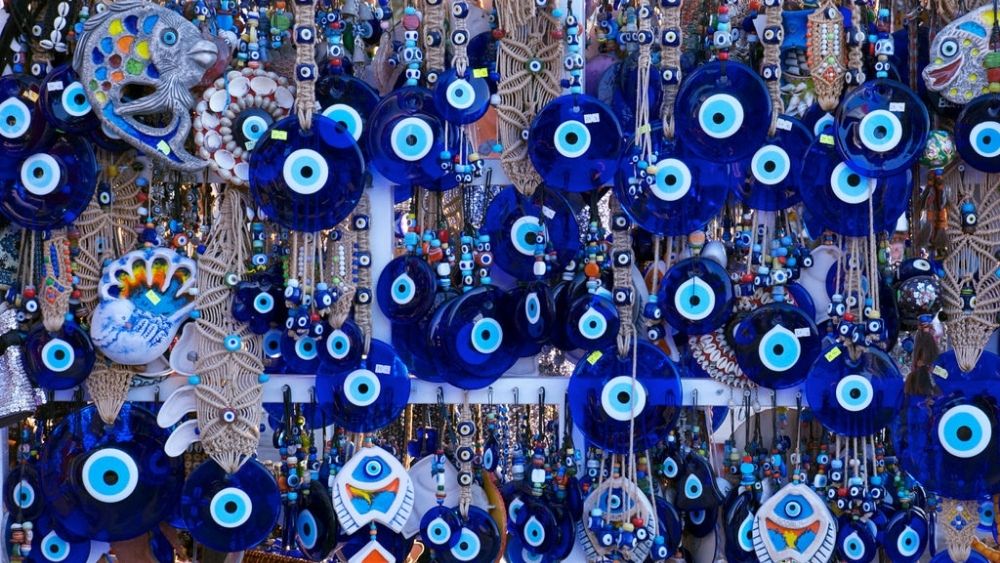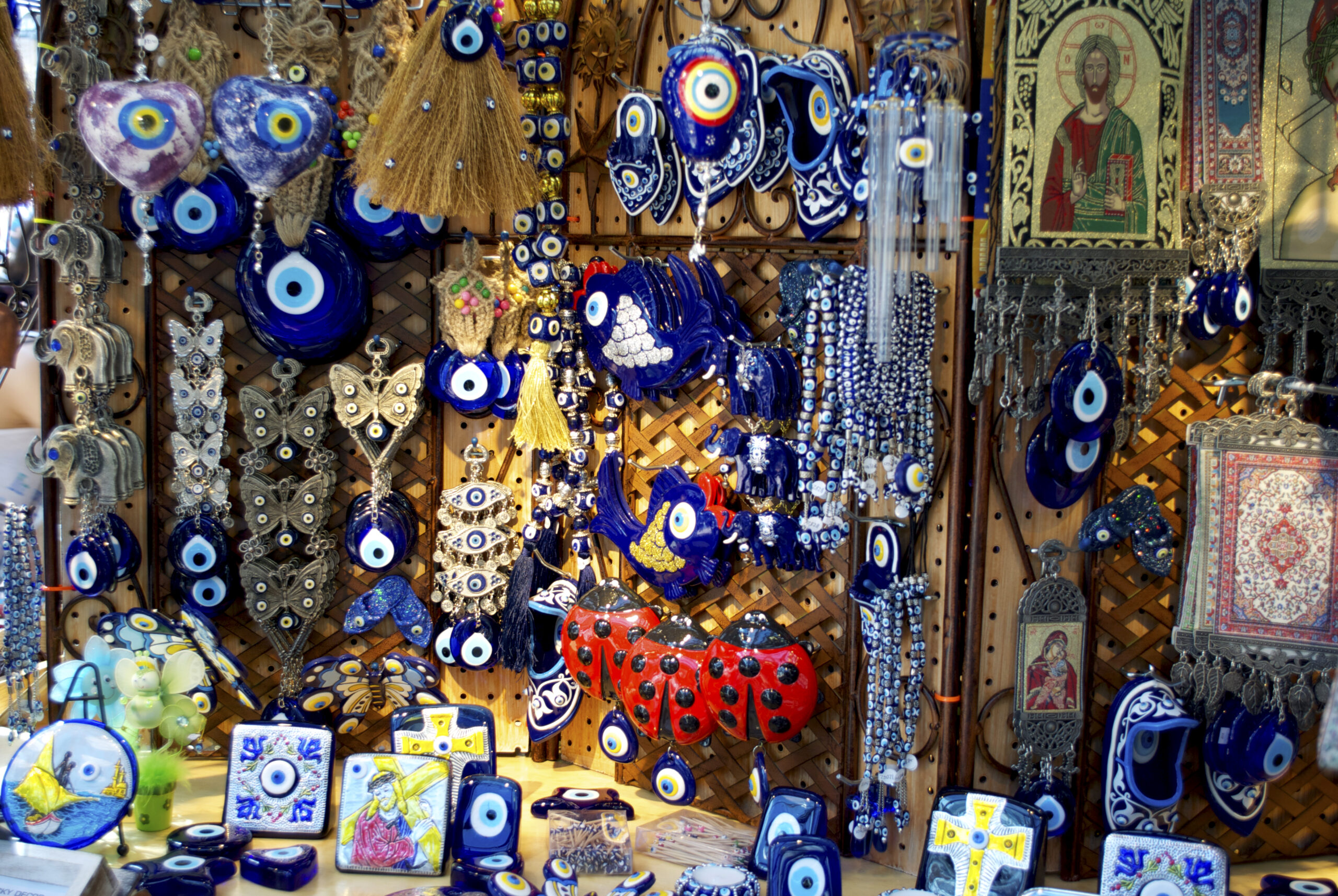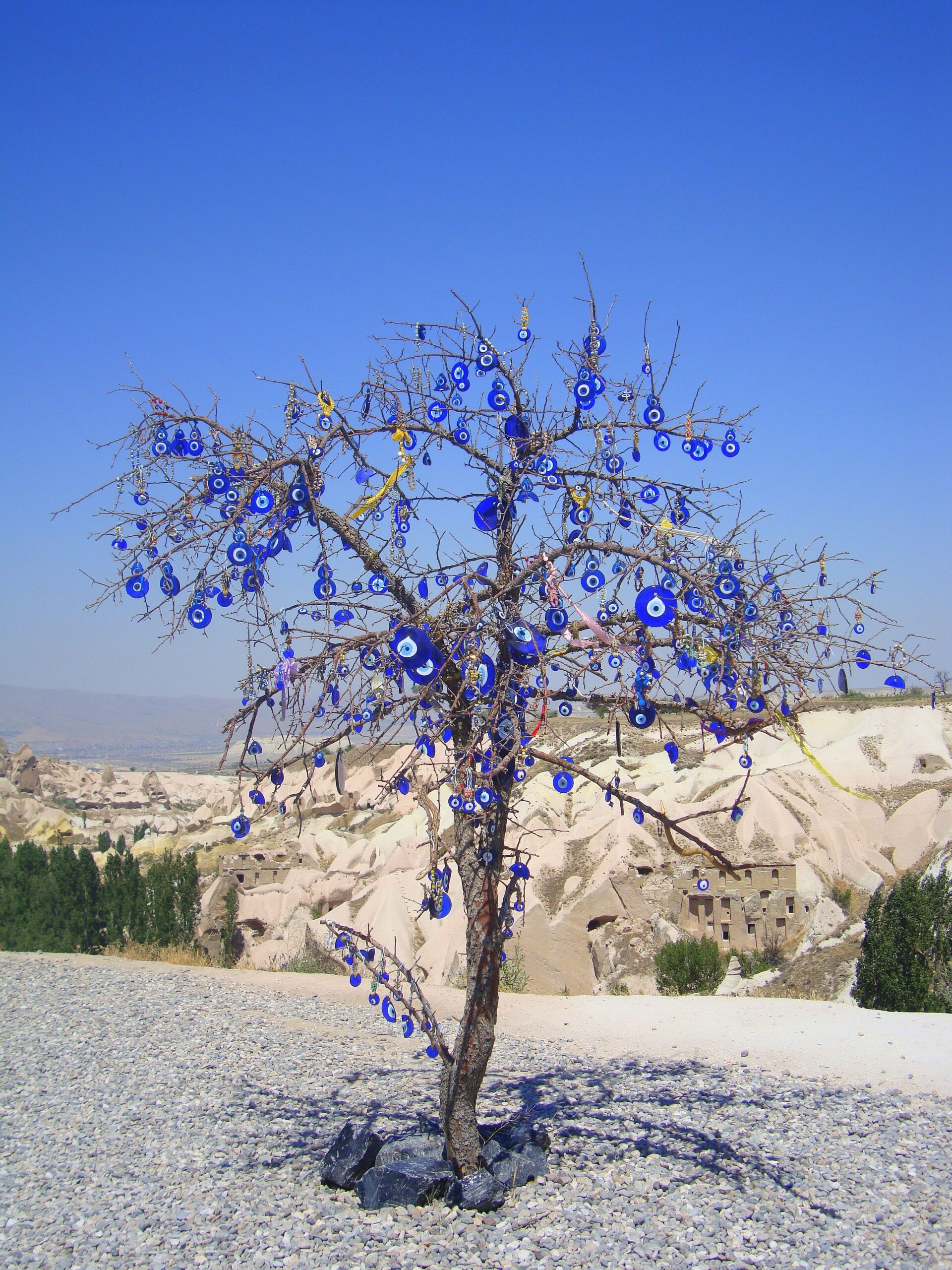The Diyanet – a government body that deals with religious matters in Turkey – recently prohibited the use of ‘evil eye’ ornaments. According to a Fatwa published online, these eye-shaped ornaments are not accepted under Islam. The ban on nazarlik or nazar boncugu in Turkey seems to be alienating people more than bringing them together.
An advisory published on the website reads:
Although the nature and condition of the evil eye are not known precisely, it is accepted by religion that some people can create negative effects with their gaze.
In our religion, attitudes, behaviors and beliefs that attribute the ultimate influence on anything other than Allah are forbidden. For this reason, it is not permissible to wear evil eye amulets and similar things around the neck or anywhere for the purpose of benefiting from them.
The ‘Evil Eye’
Many people believe in the power of the ‘evil eye’. Did you ever receive a compliment on something you owned? And then moments later had it deformed or snatched? A great number of people might have told you it’s because of ‘Nazar’.
And this concept is not only widespread in Pakistan but also in parts of Asia and across the Mediterranean.
‘Evil Eye’ Ornaments
The ‘evil eye’ ornaments, mostly seen in blue color, have been a part of the Turkish culture for many years. The tradition dates back to 3,300 BC. According to the belief, these ornaments ward off the evil eye and protect the wearer.
Nese Yildiran, professor of art history at Istanbul’s Bahcesehir University, explained why these ornaments come in blue. Talking to Aljazeera, he said:
The Great Seljuks who accepted Islam continued the use of this colour in architectural decoration.
He also added that the use of two shades of blue- cobalt and turquoise- was:
Also the result of expression with the understanding of Islam.
The ‘evil eye’ charms are especially gifted to newborn babies, who are believed to attract envy more than others. But more commonly, they are used as house decor.
While some people believe in the ornaments’ powers, others wear them to accessorize their looks.
Could there be a backlash?
The tradition has been followed for ages – and it’s pretty harmless if you ask us – so, why then is there a ban on these amulets now? Many, who still believe in its powers, would end up feeling more alienated. A small shop owner revealed:
They’re just for decoration really. They’re probably the best-selling product here, but I don’t think people really believe in the power of them. It’s just a nice tradition and they make good decorations.
But a villager from Nazarkoy does not agree. He has a strong conviction for these amulets.
This is a belief. They are blue because it’s thought that the color blue distracts evil energy. Of course, I believe in them. It’s part of a culture that goes back 3,000 years.
When you wear an amulet, if someone with bad energy looks at you the amulet averts the bad energy and protects you.
The locals are not the only ones familiar with the concept – tourists from other countries are attracted to these blue eye-shaped ornaments too. Some even take a few of these amulets home, for their loved ones.
One of my favorite things is a letter opener with and evil eye charm my dad brought home from Turkey as a souvenir for my grandmother. https://t.co/chj0QXxoZj
— Heather on the Hill (@jitterbug212) January 23, 2021
The Diyanet or Directorate of Religious Affairs has not yet responded to the questions raised by the public. But until then, these ‘evil eye’ amulets are impermissible, according to it Islam. What do you think of this story? Share your views in the comments section.
ALSO READ
These Old Photos of Engin Altan Prove He Has Always Been Handsome










